Content from the Brookings Institution India Center is now archived. After seven years of an impactful partnership, as of September 11, 2020, Brookings India is now the Centre for Social and Economic Progress, an independent public policy institution based in India.
The new PM should pave the way for the introduction of a bill that lays out the road map for energy independence,security and sustainability
The new prime minister should immediately give a speech on energy. It should emphasise the criticality of the energy crisis and articulate the government’s intent to develop a multi-pronged strategy for harnessing the hydrocarbon resources of the country, accelerating the growth of renewable energy, driving energy conservation and efficiency and weakening the nexus between economic growth, energy demand and environmental protection. The PM should emphasise that energy will be looked at through a holistic prism and that the government will table a bill in Parliament’s winter session on energy responsibility and security. This bill will lay out the road map for achieving energy independence, energy security and energy sustainability and it will define clear metrics for measuring progress down this pathway.
Draw up energy policy
Within 100 days of this speech, the PM should announce the creation of a department of energy to be located in the PMO. The prime minister should state that this department of energy resources and security will develop and articulate an integrated energy policy; it will be the focal point for defining an international energy strategy and for ensuring that the weight and resources of ‘India Energy Inc’ are deployed to back the efforts of Indian energy companies to acquire overseas assets; it will identify areas for research, develop technology partnerships and incubate new ideas; it will be the ‘energy ombudsman’ of the sector with overall regulatory responsibility and it will be the nodal point for interface and communication with the public regarding the logic and rationale of the government’s energy policy. The prime minister should make clear that the purpose of this department is not to supplant the existing ministries dealing with energy-those of petroleum, coal, power, renewable and non-conventional energy and atomic energy-but to deal with the issues that have fallen into the cracks between these ministries. In this 100-day period, the PM should meet with the chairmen of ONGC, Oil India and Coal India, along with secretaries of petroleum and coal, to discuss the enhancement of production. The PM should direct ONGC and Oil India to increase recovery rates of oil and gas from their fields from the current average of 28 per cent to at least the global average of around 40 per cent. The next PM should tell the chairman of Coal India to make up production shortfall and arrest the rising trend in coal imports. In turn, the government should commit to safeguarding these PSU officials from overzealous vigilance and intrusive bureaucracy. Also, it should unclog coal projects stranded because of red tape and lack of approvals.
Build consensus
Energy is a concurrent subject. Both the Central and state governments have a say in its development. The next PM should build political consensus on contentious energy issues. The PM should talk to chief ministers to resolve issues related to State Electricity Boards, power generation, pricing, subsidies, Goods and Services Tax (GST), land acquisition, regulation and approvals. There is broad agreement on the economic answers. Electricity boards should be allowed to charge remunerative tariffs, energy prices should be aligned to the market, subsidies should be contained-but when given, they should be from the public exchequer and transferred directly to the beneficiaries-GST should be implemented and the approval processes made more efficient. But there is no agreement over the political response. The result has been an inexorable worsening of the energy crisis. The PM should set a one-year target to come up with a solution that is economically sensible and politically palatable. Private sector investment is a sine qua non for energy independence.
Whether it is to increase supplies through enhanced investment in fossil fuels or to contain demand through efficiency and conservation or to protect the environment through clean technology, the role of the private sector is imperative. The latter has, however, been shaken by the twists and turns in government policy towards contracts, prices, marketing and the intrusive oversight of the bureaucracy. The PM should try and change these perceptions.
On the policy front, this would mean pushing the petroleum ministry to ensure that the terms of the New Exploration Licensing Policy (NELP) are competitive and flexible. The terms should allow for open acreage bidding, retaining the “cost oil” recovery principle in the production-sharing contract rather than replacing it with a “revenue sharing” model and according the same tax benefits to gas production as currently accorded to oil production. It would mean endorsing the gas price of $8 per MMBTU recommended by the C. Rangarajan panel and granting the gas industry infrastructure status. It would require the PM to push the coal ministry to dilute the monopoly of Coal India through partial privatisation of coal mining.
And it would require the PM to support the power ministry in its efforts to provide power 24×7 by unbundling generation, transmission and distribution, optimising phased power generation through the selection of right fuels, technology and differentiated pricing, and by containing transmission and distribution losses.
Make it bankable
Finally, the PM would have to get everyone to work with banks to create a bankable business model for development of energy infrastructure-gas pipelines, coal transport, port facilities. On the personal side, the PM will need to reach out to the chairmen of key energy corporates in India and abroad to assure them of the government’s commitment to competitive, transparent, fair, market-based fiscal and operating conditions. India must move towards a non-fossil fuel energy system. The economics are improving.
McKinsey has estimated that the cost of installed solar power has dropped from $6 per watt in 2010 to $2.60 today and that it will drop further to $1.60 by 2020. What has not improved in tandem is the ‘smartness’ of the grid.
India has the capability to be at the forefront of clean energy technology. To achieve this position, however, the sector will need political support, executive clarity and organisational cohesion. The revitalisation of the solar, wind and nuclear options and the development of the associated ‘smart grids’ should be an ongoing priority for the duration of the PM’s tenure.
This column first appeared in India Today, on May 18, 2014
The Brookings Institution is committed to quality, independence, and impact.
We are supported by a diverse array of funders. In line with our values and policies, each Brookings publication represents the sole views of its author(s).
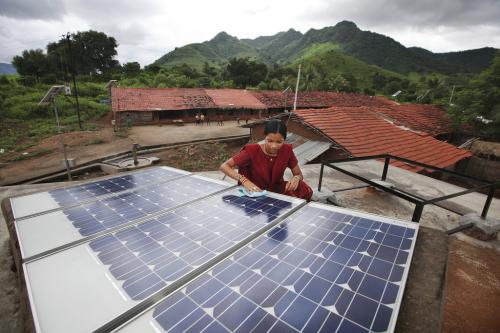
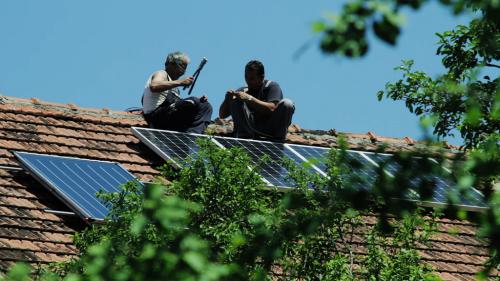
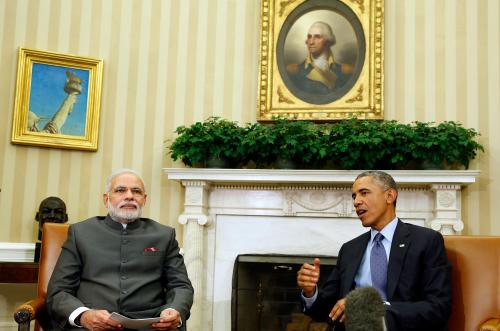
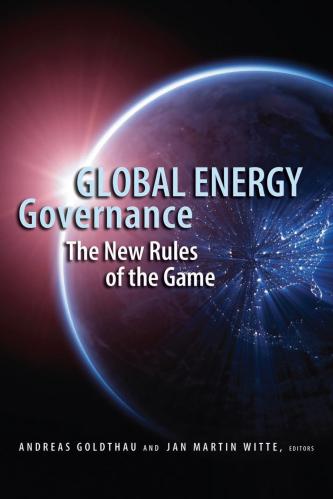

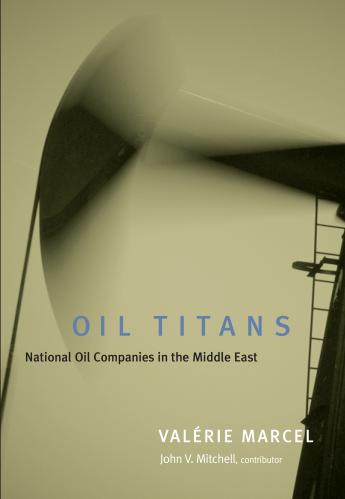



Commentary
Op-edCreate department of energy in PMO
INDIA TODAY
May 23, 2014